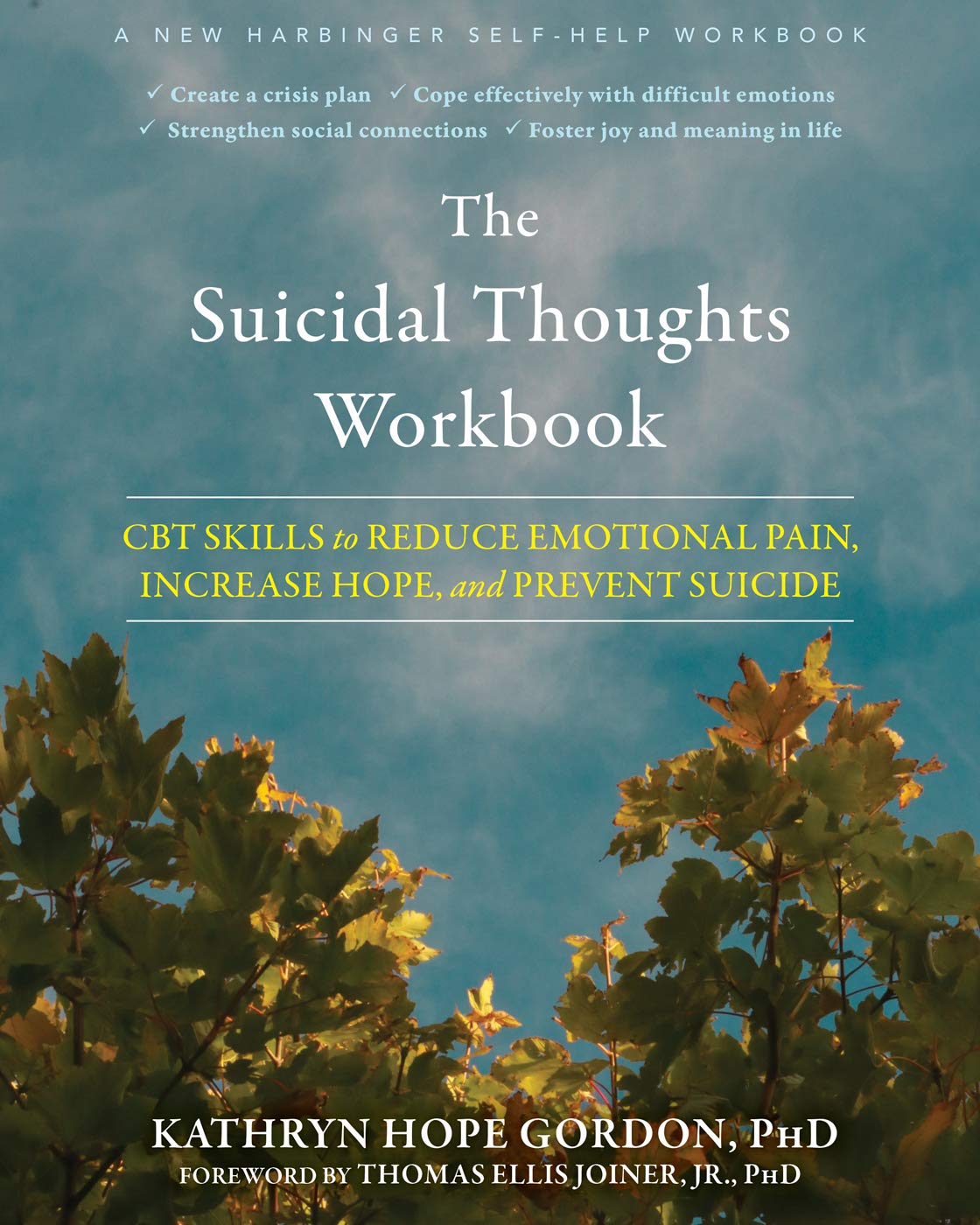
Suicidal Thoughts Workbook
If you or someone you love is dealing with a crisis right now, please call 1-800-273-8255 to reach the National Suicide Prevention Lifeline.
A compassionate guide to managing suicidal thoughts and finding hope
If you’re struggling with suicidal thoughts, please know that you are not alone and that you are worthy of help. Your life and well-being matter. When you’re suffering, life’s challenges can feel overwhelming and even insurmountable. This workbook is here to help you find relief and solutions when suicidal thoughts take over.
Grounded in cognitive behavioral therapy (CBT), this compassionate workbook offers practical tools to guide you toward a place of hope. It will help you identify your reasons for living, manage intense emotions and painful thoughts, and create a safe environment when you are in a crisis. You’ll also find ways to strengthen social connections, foster self-compassion, and rediscover activities that bring joy and meaning to your life. This workbook is here to support you. However you are feeling at this moment, remember the following: You are worth it, you are loved, and you matter.
My Account Info
Manage your Membership information, email preferences, and more.
Journals
Membership in ABCT grants you access to three journals.
Convention
We are now accepting Abstract submissions for Continuing Education Ticketed Sessions at the 2024 ABCT Convention in Philadelphia, PA.
My Account Info
Manage your Membership information, email preferences, and more.
Journals
Membership in ABCT grants you access to three journals.
Convention
We are now accepting Abstract submissions for Continuing Education Ticketed Sessions at the 2024 ABCT Convention in Philadelphia, PA.
Editorial Reviews
“Kathryn Gordon’s workbook helped me self-reflect when I didn’t feel like I could handle my thoughts. When all feels lost, resources like this are exactly what we need: hopeful, analytical, educational, and practical. I will absolutely be recommending the book to others who might be feeling the same pain of suicidal ideation or hopelessness, as well as those who are looking to better understand and help their loved ones.”
—Marie Shanley aka Mxiety, mental health advocate, live talk show host, and author of Well That Explains It
“Kathryn Gordon has translated our best theoretical and scientific understandings about why people are suicidal into an elegant, accessible, and easy-to-use workbook. Short chapters are full of practical and reproducible worksheets that walk the reader through hope and healing. She pairs her deep knowledge of the suicidal person with her expertise in cognitive behavioral therapy (CBT) to create an invaluable resource for clients, their family and friends, and mental health professionals.”
—Jonathan B. Singer, PhD, LCSW, president of the American Association of Suicidology, and coauthor of Suicide in Schools
About the Author(s)
Back
